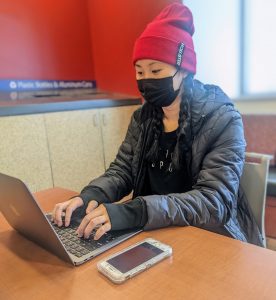 By KCI Trustee Subashree Venkatasubramanian
By KCI Trustee Subashree Venkatasubramanian
Ah, exams … the bane of my existence. But no matter how much I despise studying for exams, what’s even worse is failing an exam because I didn’t study enough. Here are some of my studying tips that might help you prepare more effectively to ace a big test.
Start early. Yes, studying the night before an exam might have worked on some of your past tests. However, it’s not a good practice to cram hours of lecture late at night, especially if you have a morning exam the next day (trust me, I speak from personal experience). The earlier you start studying, the less stressful your test prep will be. You’ll also retain the information much better by covering it in detail over a longer period of time.
A strategy that works really well for me is to take comprehensive lecture notes during class and then review them at home later that day, so that I cover the material at least twice. When taking notes, make sure to clarify any concepts that you don’t understand with your teacher or professor. Ask questions in class or during office hours to make sure you have a solid grasp of each concept. By starting early and giving yourself enough time to learn the material, you’ll be set up for success on your exam.
Make a study strategy. The most effective studying always has a game plan. I like to make a checklist of each lesson/concept that might be on the exam and go through each one during my exam review sessions. I love checklists because I find it very satisfying to visualize my progress, but other tools like timetables or sticky notes are also great methods to utilize.
Remember that over-studying is always better than being under-prepared. If you think there’s a possibility something might end up on your exam, it’s better to add that concept to your study to-do list just in case.
Digest the information in multiple ways. I’ve been told repeatedly that the best way to retain the information that you study is to interact with it in multiple formats. Read your notes out loud, rewatch lecture videos, draw concept maps to visualize information or visit Quizlet (a website with study tools). If you’re part of a study group, explain to your peers how you got your answers: That will help you confirm if you really understand the material.
Make a playlist (or two). If you’re not a big “listen to music while you study” person, then maybe this isn’t for you. But personally, I need to have something playing while I read notes, or I will instantly fall asleep. If you’re trying to cram the night before, then I recommend music without lyrics, like classical or jazz, so you can better focus on the study material. However, in other situations, I’ll alternate between two completely different playlists (say, Tchaikovsky and Post Malone) to keep me engaged over a long study session.
Take a break. Of course, it also goes without saying that no matter how much material you need to study, you should take frequent breaks. Every 20 minutes or so, get up to stretch and drink some water. If you’re constantly staring at a screen during your test prep, it’s important to relax your eyes and focus on other objects in your room intermittently.
Get some sleep. I’m sure you’ve heard teachers tell you this many times. And yes, while the advice is overdone, I can’t stress how important it is for you to be awake during an exam. Rest up before a big test to make sure that your brain is in good condition. There’s no point in pulling an all-nighter if you won’t be able to remember anything you studied the next day because you’re running on two hours of sleep. (Once again, unfortunately, I’m speaking from personal experience.) Take naps during your review sessions and sleep as much as you can the night before to be in the best condition for your test.
Hopefully, these tips will help you do your best on your next exam. It’s okay to be stressed, but keep in mind that your intelligence is not defined by your exam performance; we all fail some tests and that’s okay. What’s important is that you try and do better on the next one. So good luck with your next test, and all the ones you’ll take after that.